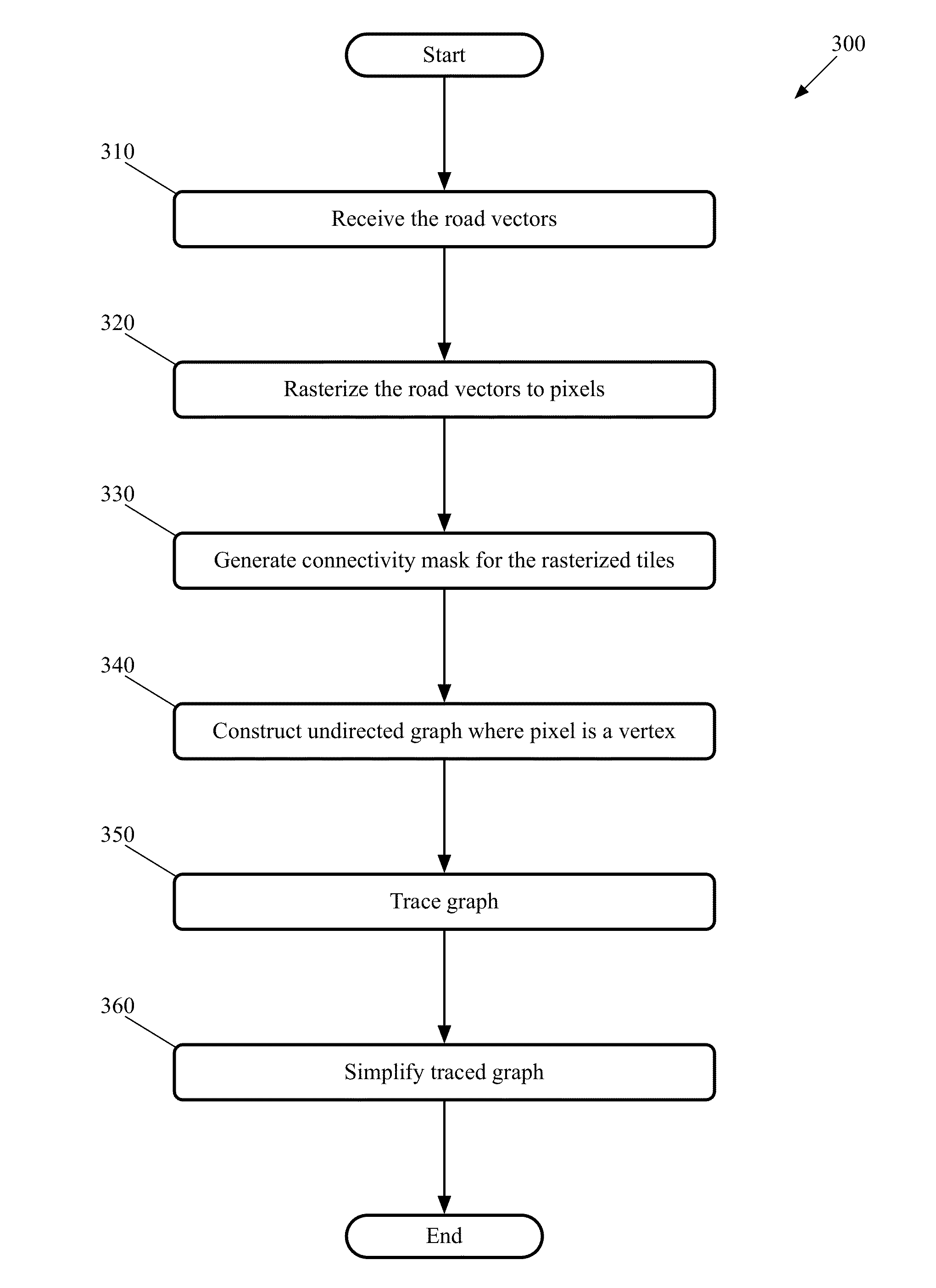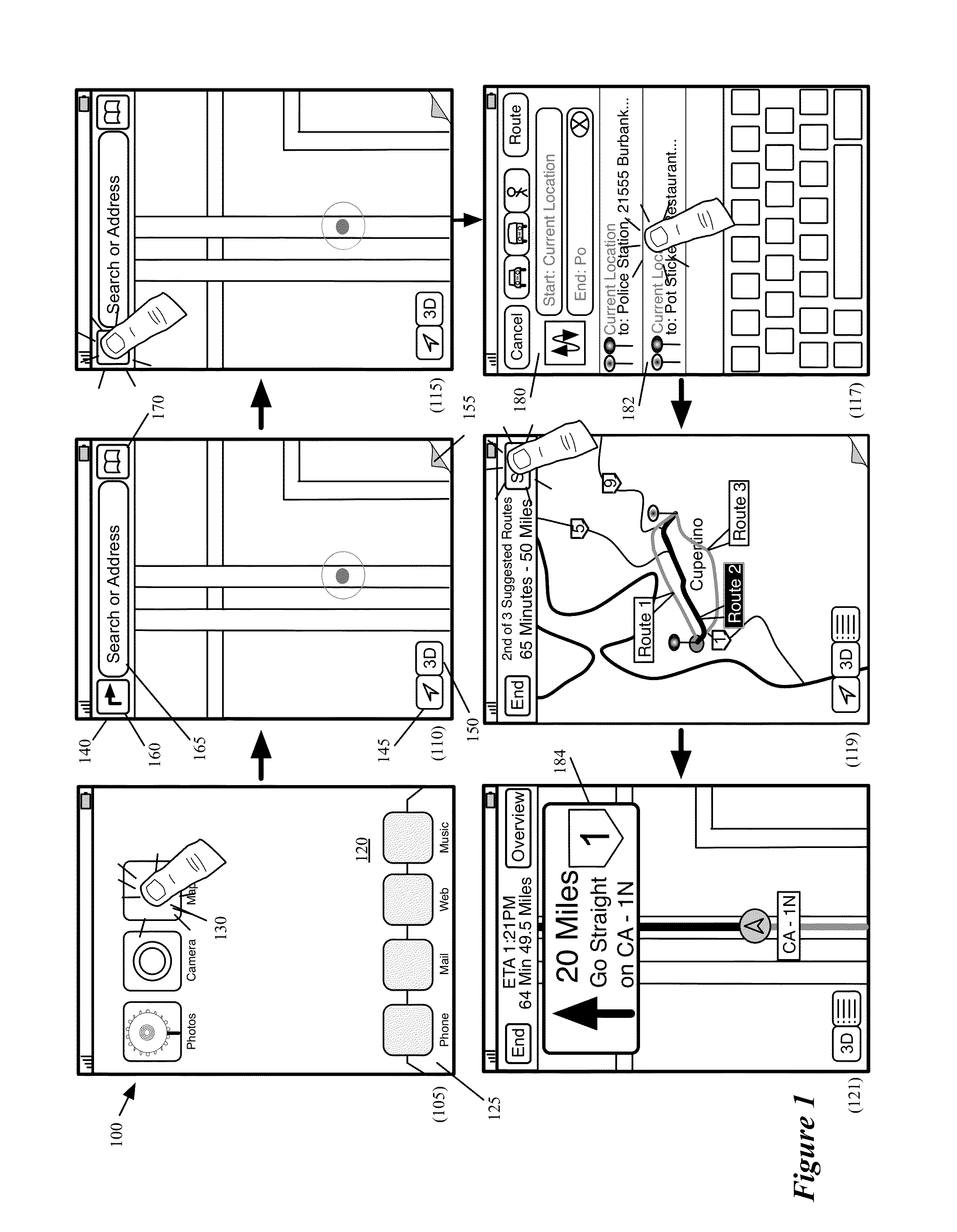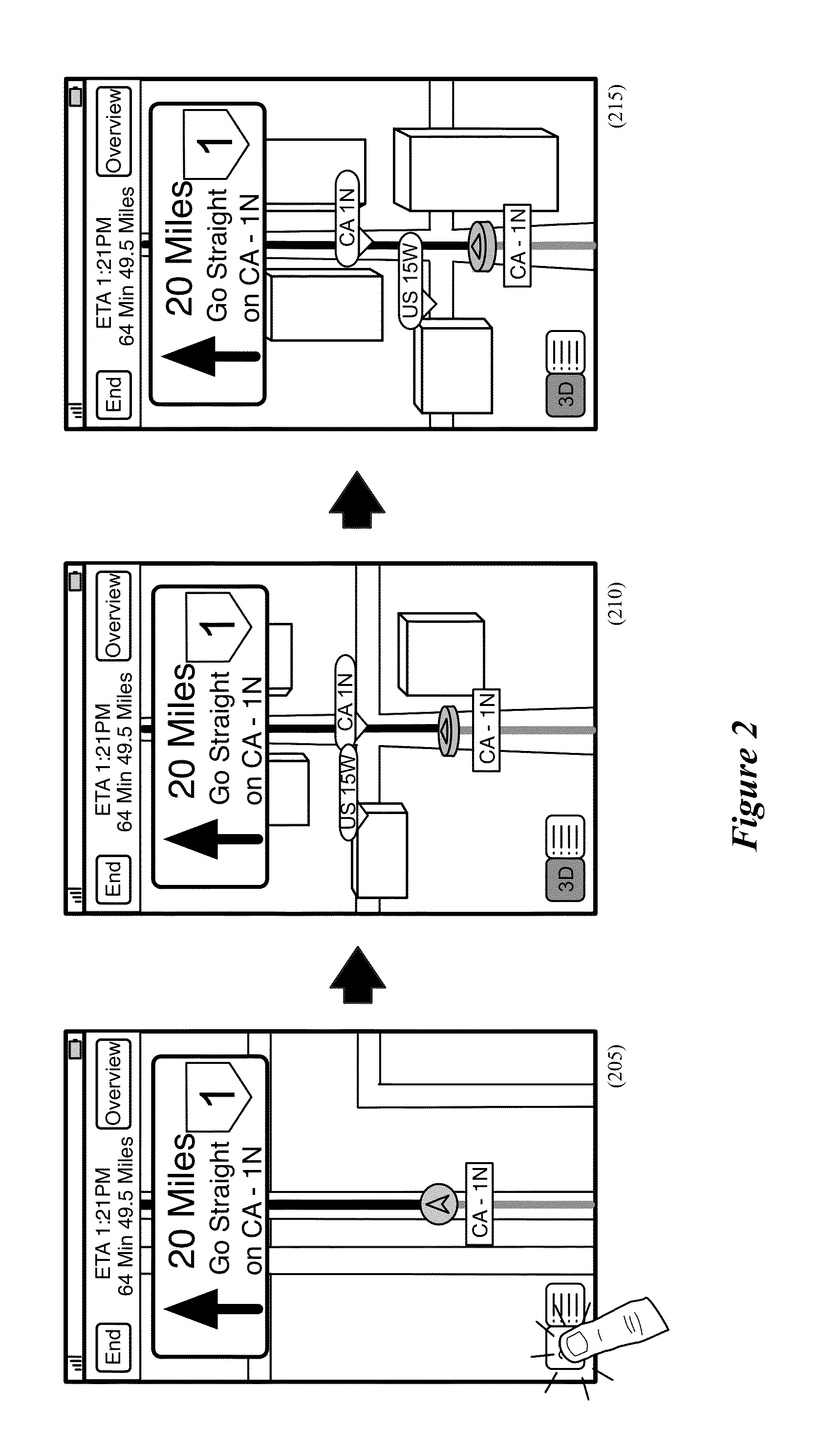Scalable and Efficient Cutting of Map Tiles
a map tile and efficient technology, applied in the field of map tile scaling and efficient cutting, can solve the problems of wasting memory space, wasting memory space, and unable to keep track of all those roads, so as to reduce the amount of data
- Summary
- Abstract
- Description
- Claims
- Application Information
AI Technical Summary
Benefits of technology
Problems solved by technology
Method used
Image
Examples
Embodiment Construction
[0027]In the following detailed description of the invention, numerous details, examples, and embodiments of the invention are set forth and described. However, it will be clear and apparent to one skilled in the art that the invention is not limited to the embodiments set forth and that the invention may be practiced without some of the specific details and examples discussed.
[0028]Map tiles are used in some embodiments to present 3D map presentations for browsing and navigation on a client device. In some embodiments, the client device (e.g., a mobile device) has a touch-sensitive screen and a multi-touch interface that allow a user to interact with the presentations through touch and gestural inputs on the screen. In other embodiments, the presentations are provided on a device that does not have a touch-sensitive screen. In some embodiments described below, these 3D presentations are provided by an integrated mapping application that provides several useful modalities, such as l...
PUM
 Login to View More
Login to View More Abstract
Description
Claims
Application Information
 Login to View More
Login to View More - R&D
- Intellectual Property
- Life Sciences
- Materials
- Tech Scout
- Unparalleled Data Quality
- Higher Quality Content
- 60% Fewer Hallucinations
Browse by: Latest US Patents, China's latest patents, Technical Efficacy Thesaurus, Application Domain, Technology Topic, Popular Technical Reports.
© 2025 PatSnap. All rights reserved.Legal|Privacy policy|Modern Slavery Act Transparency Statement|Sitemap|About US| Contact US: help@patsnap.com



